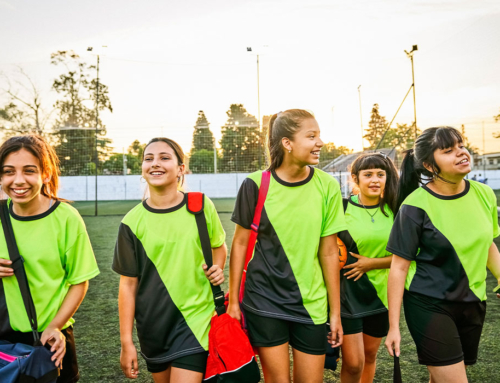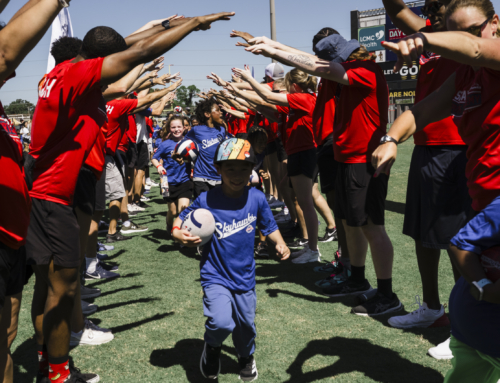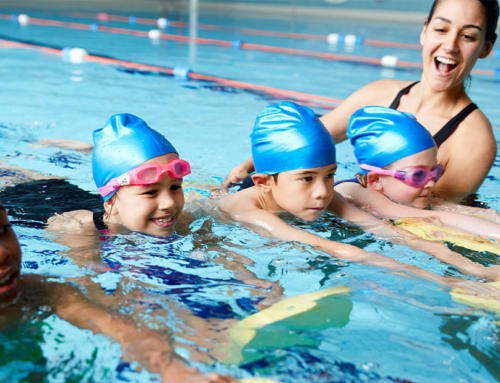Playing sports is one way for your child to experience an array of energy, feelings, and emotions- the ups and downs and the good and the bad. However, the only way to learn control of emotions is to experience and be conscious of them.
Sheltering your child from their emotions, negativity, and failure will not help them learn how to control their reaction to their feelings. But teaching them mindfulness can.
Mindfulness has a profound impact on consciousness that ramifies into enhancing athleticism, especially for younger athletes.
Children and Mindfulness
Mindfulness, by definition, is the ability to be fully present, conscious, and aware of where you are, what you are doing, and not to be overwhelmed or negatively react to a situation. And so, when you think about it, playing sports is an excellent practice for mindfulness.
Mindfulness teaches your children how to stay in “the zone or the flow” of the game. It helps your child block distraction and thoughts that interfere with their performance.
And mindfulness also helps your child understand that a mistake is just a mistake, staying positive, being consistent, and playing with maximal ability.
Mindfulness is very effective at helping children learn control because it develops and affects the mechanisms that lie within the front part of the brain.
The frontal brain controls emotions, focus, judgment, patience, motor function, problem-solving, spontaneity, memory, language, impulses, feelings, and social interaction.
So, if you want your child to excel in sports, teach them mindfulness now while they are young. You become what you repeat. Repetition and habit are the keys to ingrain positive behavior and attitudes that lead to successful outcomes and consistency.
The Benefits of Mindfulness in Sports
- Learn to stay focused, AKA in the zone or flow of the game.
- Improves ability to block out negative thoughts or emotions.
- Reduces stress
- Enhances sports performance
- Builds self-confidence
Mindful Activities for Young Athletes
Mindfulness may be self-taught or instilled by the guidance of another, possibly a parent or coach. Adhere to the following exercises:
Breathing Exercises
Have your child sit on a chair and have them feel and observe how they are breathing. For example, have them breathe through their nose with a long inhale and long exhale. Then, have them breathe fast through their mouth the same way to feel the differences. Or, have them blow up a balloon with long and short breaths.
Walking Meditation
Walk slow and focus on the details around you, your breathing, your body, and each step. Point things out to your child and have them focus on the things you show them. Learn to block out any thoughts or emotions that come about.
Body Scan
Stretching and doing yoga can help be mindful of tension and stiffness in your body. And by holding stretches, your mind pays attention to the tension. Being mindful of tension enhances flexibility, whereas avoiding the tension, does not solve the problem. Have your child stretch. Hold those stretches and have them feel the muscle tension.
Mindfulness Tips for Sport
Your child needs to understand why they play sports, the motivation behind their actions. Are you pushing your child to win? Are you training them to be the best?
Children need to understand that playing sports is fun and it’s not wrong to enjoy winning. But there is no reason to be sad in defeat.
A balance needs to be established as the foundation on which thoughts, feelings, emotions, and desires exist. When you have balance mentally, you have control physically.
The body follows the mind and balance prevents negative feelings and emotions from taking over. Fun is not about whether you win or lose, but about playing the game the best you can.
Experience is life’s best lesson. Children need to experience. You cannot shun them away from negativity or failure, however, you can guide their feelings and emotions in the right direction. This will help customize their perspective and mindfulness.
At practice or at home, make your child aware of their body. For instance, even though your child may play soccer, throw a frisbee around at home to practice movements in different directions. Even martial arts may help to improve concentration, be mindful, and control emotions.
Keep emotions in check at all times when competing. When emotions are high, performance goes down. Mindfulness will keep them in the zone to reinforce and instill balance for them to have control. The zone is the place where performance is enhanced and potential is maximized.
Playing sports is an excellent way to teach your child mindfulness. Mindfulness is not about guru meditation. It is about being present, taking control, relaxing emotions, and understanding. Your child will only develop this maturity through experience, reflection, and guidance. As a coach or parent, if you follow these activities and tips, you can develop your child’s mindfulness.
The original article is from stack.com
Read More:




